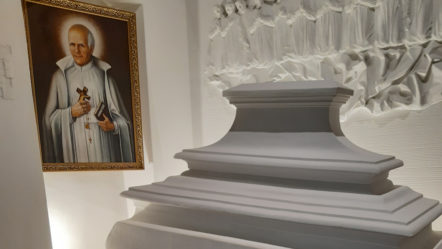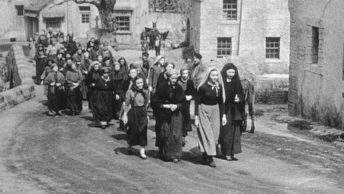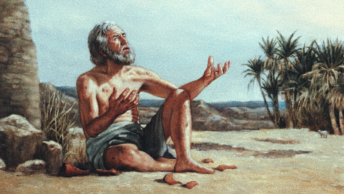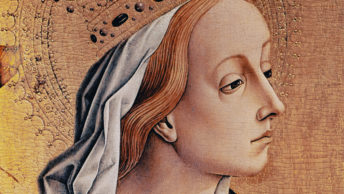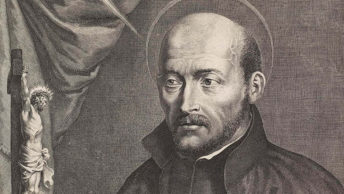What makes a great priest? On May 18th, when the Congregation of Marians of the Immaculate Conception celebrate the birthday and liturgical memorial of its founder, Saint Stanislaus Papczynski, it is a good time to reflect on this.
John Papczynski was born in May 1631, became a Polish Roman Catholic priest, and is considered a patron saint of unborn children and of children with learning difficulties.
“Gradually, the Lord transformed the little shepherd-boy, who found it so hard to study and was physically so frail, into a preacher who drew crowds through his wisdom filled with erudition and profound mysticism; into a confessor whose spiritual counsel was sought after even by the great men of Church and State; into a well-prepared teacher and an author of various works published in numerous editions; into the founder of the first Polish Religious Institute for men, the Congregation of the Marian Clerks of the Immaculate Conception of the Blessed Virgin Mary.” (Homily addressed by Cardinal Bertone, Beatification Mass at the Shrine of Our Lady of Lichen, 2007)
We all create our own images of greatness as these pertain to virtue, perseverance and holiness. But there’s a common denominator which speaks of exceptionality in a different way, that is, for the love of God and the salvation of souls, with total submission to His will, enduring tribulations, illness, and pain.
Before this happens, a man usually passes through a lengthy period of purification and sanctification. For in fire gold is tested, and the chosen, in the crucible of humiliation. (Sir 2:5) Otherwise, a soul which has not been cleansed of pride enough, credits everything to himself instead of the grace received by the merits of Jesus Christ.
The man who knew suffering
Most people are probably unaware of this aspect. He is a Saint who suffered trials and adversities in every stage of life; several times, had been miraculously saved from almost certain death. St. Stanislaus, a deeply humble, charitable and holy monk, is occasionally compared to the modern day St. Padre Pio.
Sophia Papczynski was returning home to Podegrodzie in mid-May 1631 and had to cross a dangerous mountain river by ferry. While they were only halfway across a sudden gust of wind caused the boat to rock, and Sophia found herself in choppy waters. Not only was her life in danger, but she was also concerned about the child she was carrying. Sophia sent up a quick prayer, giving her unborn child to Jesus and Mary without reservation. God answered the prayer and just in the nick of time she was rescued from the water by people on the ferry. According to tradition, the rescue of Fr. Papczynski’s mother from the waters of the Dunajec River was attributed to the supernatural intervention of Divine Providence.
John’s parents withdrew him from school and assigned him the task of tending to the sheep due to his enormous difficulty in learning the alphabet. This experience proved to be a source of intense humiliation for him. However, divine intervention came to his aid, and with the help of a family friend, John learned the alphabet in a single day. Consequently, he completed grammar school education with remarkable success and later pursued philosophy under the guidance of the Jesuits.
During a severe winter, Sophia and young Johnny were journeying at night via a horse-drawn cart. As they traversed the ice-covered river, the ice gave way under the significant weight. However, at the last moment, the boy was able to leap off and make his way to the riverbank in search of aid. There, Johnny ardently implored God to rescue his mother from the dire peril. Individuals came, out of the blue, and pulled the man, the horses and the cart out of the water.
As a grown-up student living in Lwów (Lviv) Papczynski was subjected to a terrible eighteen months ordeal, in which time he learnt how to rely on God’s Providence.
In 1648, a pestilence epidemic swept the city, and during this time, while staying with a friendly family, Johnny became gravely ill and was confined to bed. Once the fever subsided, scabies appeared all over his body, resulting in his eviction from the house. Subsequently, Johnny roamed the streets of the city in search of sustenance and temporary refuge, frequently resorting to begging.
His biographers said “God, in His Mercy, did not abandon him. He found people willing, out of kindness and charity, to take him in and care for him. And, strangely enough, the household dogs, by licking his wounds, caused them slowly and almost miraculously to heal and disappear, one after another.” It was only February 1649, when fellow villagers from his hometown came to Lwów and provided him with money from his father which finally enabled Johnny to fully recover and combat grinding poverty.
In September 1665, despite the occupation of Warsaw by the Swedish armies, Stanislaus Papczynski, a Piarist novice, continued his studies. One day, while passing by a Dominican church he encountered a Swedish Protestant soldier and engaged in an intense discussion about the faith. Driven by his youthful zeal he was determined to convert the opponent, and was willing to suffer martyrdom by the heretic sword, if necessary.
Papczynski put down later “My companion (even though he was German) ran away, and I fell to my knees, bared my neck, and braced myself for the blow. However, by the decree of Divine Providence, I did not sustain any wounds, even though I was struck three times with great force, which caused such great pain that I felt it for almost an hour and a half.” This was not the last time he escaped death by inches.
The greatest trial of faith St. Stanislaus Papczynski ever experienced, involved a wrongful incarceration. The drama, which unfolded in the course of three months, was later described by the Saint.
In January 1670, Fr. Stanislaus was forcibly removed like a criminal from the Piarist residence at Kazimierz, near Cracow, and sent to Podoliniec, and then carried further to Priewidza in Slovakia.
“The Provincial Superior put me in a carriage with a roof (…) he transported me, half dressed, in severe winter weather, for almost twenty miles and almost killed me during the trip by a strike with a thill on my neck. In Podoliniec, he kept me locked in a cell even though I was sick. When I asked to receive the Sacrament of Extreme Unction (the anointing of the sick), he forbade that. He forbade anyone to come to me even though I was close to death.” (Stanislaus Papczynski (1631-1701); Founder of the Order of Marians and Inspirer of the Marian School of Spirituality)
The man who drew people to God
“They will pick up serpents [with their hands], and if they drink any deadly thing, it will not harm them. They will lay hands on the sick, and they will recover.” (Mk 16:18)
Saints do not perform miracles by their own power, but they are humble channels of God’s power. Christ works through them and through the conformity of their will to His.
Miracles can be hard for the modern mind to accept. Mrs. Racoborska, a noblewoman and landowner of Cedrowice which bordered New Jerusalem, held a hostile attitude towards the Marians, prohibiting them from picking up dead wood from the forests that was used as fuel in the monastery. One day, her 12-year old daughter fell critically ill, and the desperate mother sought the Dominican Fathers` help in praying for her child’s life. However, the girl’s condition worsened. She was then advised to immediately seek Fr. Stanislaus` assistance. Upon entering the Cenacle, the woman heard the words “I know why you are here, Go home; your daughter is dead.” In spite of this, the following day, the girl’s body was brought to the Cenacle and place on the table commemorating the Last Supper. Fr. Papczynski instructed the mother to go to confession while he began the Mass at the altar of St. Raphael the Archangel. As the priest was singing Gloria in excelsis Deo the girl suddenly returned to life. After the Mass, the mother expressed her gratitude by falling down at his feet.
Powerful healing prayer was often attributed to St. Stanislaus. During his stay with the Karski family, their son Joseph was involved in a tragic incident. The boy’s body had been badly crushed after falling under the wheels of a heavy wagon. Once the priest stood at the bedside of a dying child he told him: “Joseph, get up and hurry. You will serve at Holy Mass for me.” The boy immediately got to his feet and followed Fr. Papczynski to the chapel.
Divine Providence bestowed a gift of prophecy upon Fr. Stanislaus which sometimes turned out to be invaluable in his pastoral work. Nourished by the wisdom of the Cross, he was able to foresee people’s futures and the consequences of their actions.
Otolia Cetler, who came from a noble family, was willing to join the Dominican Sisters in New Jerusalem. Numerous doubts had arisen over her fragile and delicate state of health. Both the Sisters and her own parents found her rather unsuitable for religious life. The determined young woman decided to look for the aid of spiritual discernment from Fr. Stanislaus. Not only did he affirm her that she would be happy in her vocation and remain in the community till her death but also prophesied that to her dismay, some other sisters, who looked seemingly stronger and more suitable, would leave the religious life. And it happened.
In the autumn of 1697, King August II was crowned in Cracow and on his way back to Warsaw spent a night in New Jerusalem. The Saint happened to eavesdrop on a group of senators who said “Yes, we chose him as our King, and it was a good choice; but he will not live long; he is too fat.” On hearing this Fr. Stanislaus declared: “My Lords you are mistaken. The King will live a long time. He will live as many years as I have here golden coins that he gave me.” As he poured out coins of his hand, there were thirty-five of them; the number of years the King was yet to live.
On November 11, 1673, Fr. Papczynski fell into ecstasy, during of which he saw a crushing victory by the Polish army led by King John Sobieski III over the Turks at Chocim. When the ecstasy ended, he shared this news with the faithful gathered at the church. It proved later that the timing of the mystical experience coincided with the events in the battlefield.
Living in a war-torn time period, the Saint witnessed thousands of casualties on battlefields, and also from raging plagues and natural disasters. As chaplain for Polish soldiers in battles against Turkey in Ukraine in 1674, he was deeply moved to observe that many people died with no time to prepare to meet their Maker.
“One day in the midst of these graves, he had a vision of many of the souls, who begged him groaningly and with much insistence that he never cease to render them such help,” because they suffer intolerable pains in purgatory. Therefore, upon his return to his confreres, Fr. Papczynski “imposed upon them the obligation to remember in their prayers for the dead particularly the souls of soldiers and of the victims of pestilence.” (S. Wyszynski, Life of the Ven. Servant of God Fr. Stanislaus of Jesus and Mary)
In August 1701, the Founder of the Marians was cognizant of his imminent journey to the afterlife. While lying in bed, afflicted by fever, yet with clear mind, he uttered the words “Increase, O Lord, my sufferings, that You may diminish the punishment of the souls in Purgatory.” It appears that his unquenchable desire to alleviate the suffering of the Holy Souls persisted until the very end, as the monk left for the House of the Father on September 17th, in the location he had chosen for the new Marian foundation, New Jerusalem (at present Góra Kalwaria).
Conclusion
They are very few people who epitomize such outstanding and selfless service to the Church and to their Country in a quest to save human souls from eternal damnation by proclaiming the values we stand for. Without a doubt, St. Stanislaus was a tireless confessor, charismatic preacher, and a great promoter of the mystery of the Immaculate Conception of the Blessed Virgin Mary. The culmination of the journey of faith was his canonization Mass on June 6, 2016 by Pope Francis.
There exists a strong temptation to reduce the Church and her entire mission, almost exclusively to the temporal dimension, as another charitable institution, geared towards aiding the impoverished, the socially excluded, refugees and asylum–seekers. This is more and more perceived as a threat in Australia, one of the most “woke” places on earth, as well as in Catholic Poland.
There are many of the professed in the Church of Christ who have never made a real covenant with God at all. Regrettably, they may have not experienced that our suffering is of immense value when joined with Our Savior’s sacrifice and born with humility making it a powerful instrument to drawing people to God and to the Church.
We are truly Christian only to the extent that we accept the Cross as the fundamental option of life.

